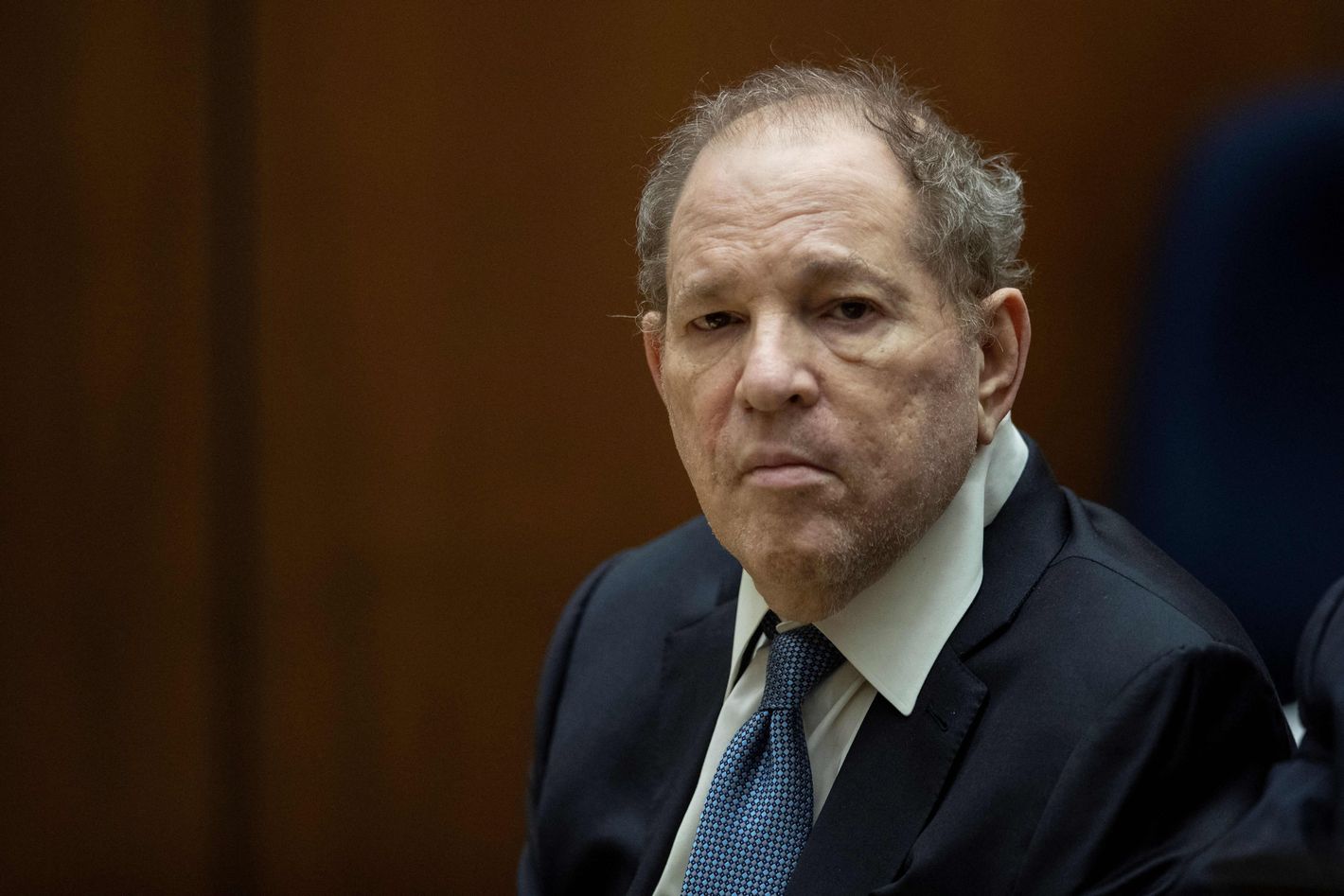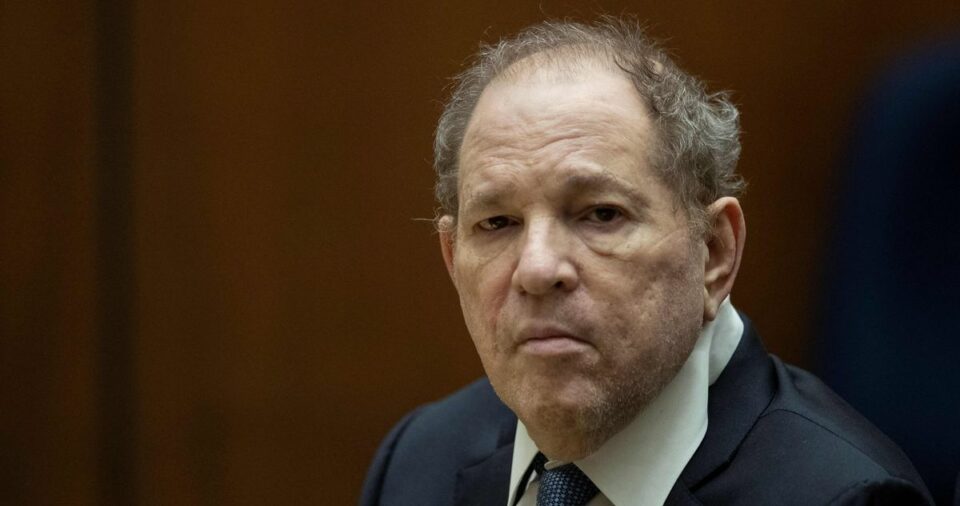[ad_1]

Harvey Weinstein’s rape conviction was overturned by New York State’s highest court on Thursday, April 25. The court said in its decision: “The remedy for these egregious errors is a new trial.”
Weinstein’s lawyers had argued before the New York State Court of Appeals on February 14 that Weinstein “did not get a fair trial” after the Manhattan District Attorney’s office was allowed to introduce numerous other accusations unrelated to the charges. The appeals court agreed in a 4–3 decision.
“Defendant was convicted by a jury for various sexual crimes against three named complainants and, on appeal, claims that he was judged, not on the conduct for which he was indicted but on irrelevant, prejudicial, and untested allegations of prior bad acts. We conclude that the trial court erroneously admitted testimony of uncharged, alleged prior sexual acts against persons other than the complainants of the underlying crimes because that testimony served no material non-propensity purpose,” the court said in its decision in part.
“The synergistic effect of these errors was not harmless,” the judges wrote. “The only evidence against defendant was the complainants’ testimony, and the result of the court’s rulings, on the one hand, was to bolster their credibility and diminish defendant’s character before the jury. On the other hand, the threat of a cross-examination highlighting these untested allegations undermined defendant’s right to testify.”
Arthur Aidala, one of Weinstein’s attorneys, had indeed focused on prosecutors’ use of prior, uncharged bad acts during the trial. Weinstein was charged with sexually assaulting three women, but the prosecution also called three other accusers who told jurors about his purported misconduct.
Their decision to bring these women to the stand didn’t help the jury better understand the charges, Aidala said, but simply made him so distasteful that a guilty verdict was all but guaranteed. “It was his character that was on trial — it wasn’t the evidence that was on trial,” Aidala said during the appeal argument. Asked for comment on the decision, the Manhattan district attorney said in a statement, “We will do everything in our power to retry this case, and remain steadfast in our commitment to survivors of sexual assault.”
The New York State Court of Appeals decision arrived just over four years after the disgraced producer was found guilty of rape in the third degree and criminal sexual act in the first degree for attacking two women, Jessica Mann and Mimi Haleyi. Mann, who was an aspiring actor, said Weinstein raped her at a Midtown East hotel in early 2013. Haleyi said that Weinstein forcibly performed oral sex on her in 2006 at his apartment in Soho. Weinstein was found not guilty of two predatory sexual-assault counts, which involved actress Annabella Sciorra’s claim that he raped her around late 1993. Three other accusers — Dawn Dunning, Tarale Wulf, and Lauren Young — alleged at his trial that Weinstein had committed misconduct. The Manhattan DA did not charge Weinstein in relation to their allegations. Weinstein was sentenced to 23 years in prison on March 11, 2020.
Douglas Wigdor, who represents eight Weinstein accusers, said in a statement, “Today’s decision is a major step back in holding those accountable for acts of sexual violence.”
“Courts routinely admit evidence of other uncharged acts where they assist juries in understanding issues concerning the intent, modus operandi or scheme of the defendant,” Wigdor’s statement continued. “The jury was instructed on the relevance of this testimony and overturning the verdict is tragic in that it will require the victims to endure yet another trial.”
This story has been updated to include statements from the Manhattan DA’s office and attorney Douglas Wigdor.
Related
- Julia Ormond Sues Harvey Weinstein for Sexual Battery
- What’s Next for Convicted Sex Criminals Harvey Weinstein and R. Kelly?
[ad_2]
Victoria Bekiempis , 2024-04-25 17:00:00
Source link



